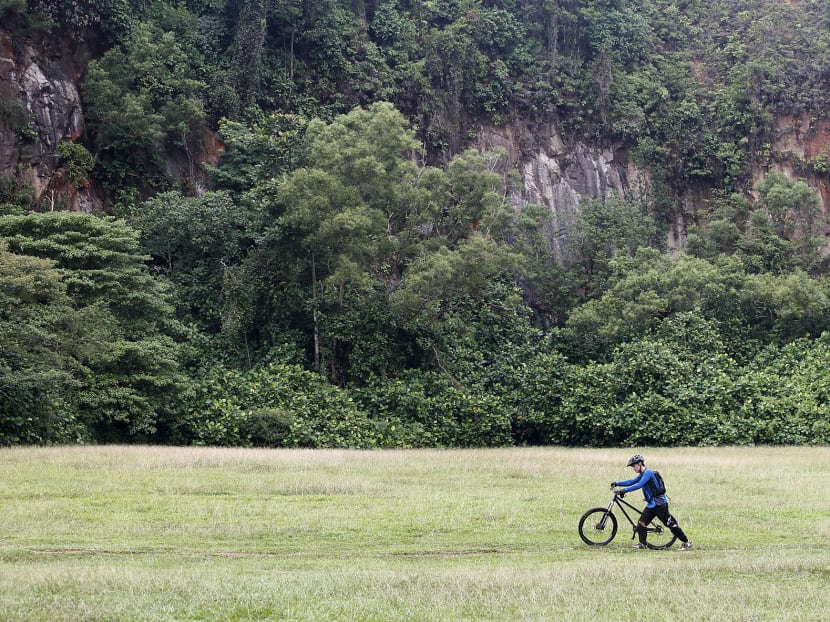MEWR responds to WWF’s Living Planet Report 2014
SINGAPORE – The Ministry of Environment and Water Resources (MEWR) has responded to recent findings in the latest World Wide Fund for Nature’s (WWF) report that showed Singapore’s environmental ranking had worsened.

A man pushes his biccyle along the Bukit Timah Nature Reserve Mountain Biking Trail. Photo: Wee Teck Hian
SINGAPORE – The Ministry of Environment and Water Resources (MEWR) has responded to recent findings in the latest World Wide Fund for Nature’s (WWF) report that showed Singapore’s environmental ranking had worsened.
MEWR clarified in its statement issued today that the Living Planet Report 2014 (LPR 2014) “fails to recognize Singapore’s unique circumstances as a small island city-state with no hinterland”, adding that the report also did not give “due recognition to Singapore’s real environmental achievements” such as sustainable development and resource efficiency.
Out of more than 150 countries analysed, the LPR 2014 found Singapore had the seventh-largest ecological footprint - a measure of the population’s demands on natural resources - in the world, up from its 12th spot in the 2012 report.
With limited natural resources, about 70 per cent of Singapore’s footprint comes from carbon emissions, produced within the country as well as indirectly through activities driven by Singapore’s economy in other countries, WWF said. Consuming large amounts of imported food and services also contributes to the amount of carbon emissions produced per capita.
However, MEWR noted there is little Singapore can do over upstream manufacturing and processing of imports overseas, as well as the city-state’s lack of natural hinterland to harness renewable sources of energy.
The ministry also pointed out that the methodology employed by WWF deviated from internationally-accepted carbon accounting methodology of the United Nations Framework Convention on Climate Change (UNFCCC), where emissions embodied in imported goods are attributed to the exporting country instead.
“Given that the methodology in calculating carbon emissions is questionable and also takes no account of Singapore’s size and circumstances (for the reasons given above), the conclusion in the LPR 2014 that Singapore has the seventh largest per capita Ecological Footprint of the 152 countries studied is similarly mistaken,” said MEWR.






